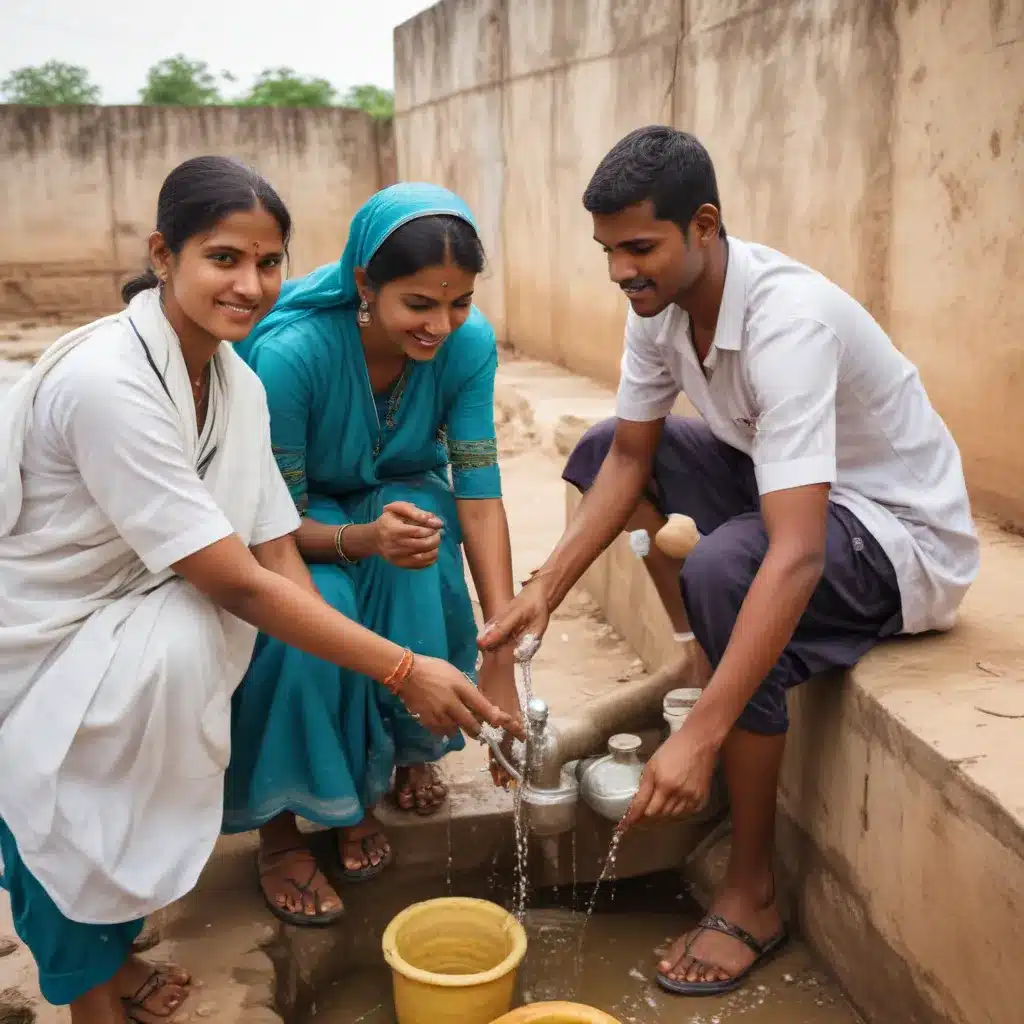
Strengthening WASH Service Delivery Through Technology and Community Engagement
In the rapidly urbanizing metropolis of Hyderabad, India, ensuring equitable access to safe and reliable water, sanitation, and hygiene (WASH) services is a persistent challenge. With a population of over 9.7 million, the city’s surging growth has put immense strain on its WASH infrastructure, leading to service gaps, water scarcity, and inadequate sanitation, especially in low-income and underserved communities.
To address these critical issues, water and sanitation advocates, community organizers, and local government agencies in Hyderabad have turned to innovative digital tools and community-based monitoring strategies. By leveraging technology and grassroots engagement, they are working to enhance WASH service delivery, improve transparency and accountability, and empower marginalized residents to become active stakeholders in the management of their water and sanitation resources.
Bridging the Digital Divide: Mobile Apps for WASH Service Monitoring
One of the key initiatives driving this transformation is the deployment of user-friendly mobile applications that enable real-time monitoring and reporting of WASH service issues. Developed in partnership with local organizations and technology providers, these apps are revolutionizing the way residents interact with and provide feedback on their water and sanitation services.
The MyWASH app, for instance, allows citizens to easily log complaints, track service disruptions, and report infrastructure problems directly from their smartphones. By geotagging issues and uploading photos, users can provide detailed, location-specific information that helps municipal authorities quickly identify and address service gaps. The app also features educational resources on WASH best practices and connects users to community-based organizations offering support services.
“MyWASH has been a game-changer for us,” says Sarita, a resident of Nallakunta, a low-income neighborhood in Hyderabad. “Before, we would have to call the water department or go to their office to report leaks or water shortages. Now, we can just log the issue on the app, and the authorities respond much faster.”
In addition to empowering citizens, these digital platforms are also enhancing the capacity of local government agencies to manage WASH services more effectively. By aggregating real-time data from user reports, the apps provide water and sanitation departments with invaluable insights into service delivery gaps, infrastructure needs, and community priorities. This information supports evidence-based decision-making, enabling more efficient resource allocation and targeted interventions.
Fostering Community Ownership: Participatory Monitoring and Advocacy
While mobile apps have revolutionized WASH service monitoring, community-driven initiatives have been equally crucial in promoting transparency, accountability, and collective action around water and sanitation issues. In Hyderabad, grassroots organizations have spearheaded the formation of neighborhood-level WASH monitoring committees, empowering residents to take an active role in overseeing local service provision.
These community-based monitoring groups conduct regular field visits, inspect water sources and sanitation facilities, and document service gaps or infrastructure issues. By involving diverse stakeholders, including women, youth, and marginalized community members, the committees ensure that the unique needs and perspectives of all residents are represented.
“Our monitoring committee has become a vital link between the community and the local government,” explains Amina, a member of the Banjara Hills WASH committee. “We hold regular dialogues with water department officials, flagging problems and advocating for improved services. This has helped us secure essential infrastructure upgrades and hold the authorities accountable.”
Beyond monitoring, these community groups also play a crucial role in raising awareness, fostering behavioral change, and mobilizing collective action around WASH issues. Through neighborhood events, education campaigns, and peer-to-peer outreach, they empower residents to adopt sustainable water and sanitation practices, such as water conservation, proper waste disposal, and handwashing.
Strengthening Institutional Capacity and Partnerships
Achieving sustainable WASH service delivery in Hyderabad requires not only grassroots engagement but also strategic partnerships and institutional capacity-building at the local government level. To this end, water and sanitation authorities in the city have collaborated with civil society organizations, academic institutions, and technology providers to enhance their operational efficiency and responsiveness.
One such initiative is the development of a centralized WASH service monitoring dashboard, integrating data from various digital platforms, including the MyWASH app, to provide a comprehensive view of service quality and coverage across the city. This real-time information hub enables water and sanitation departments to quickly identify and address service gaps, while also supporting evidence-based planning and budgeting.
Additionally, the city has invested in training programs and knowledge-sharing exchanges to equip municipal staff with the necessary skills and expertise to effectively manage WASH services. These capacity-building efforts have included topics such as digital data collection, asset management, community engagement, and performance monitoring – all of which are crucial for delivering reliable and responsive WASH services.
Toward a More Inclusive and Sustainable WASH Future
The experiences of Hyderabad demonstrate how the strategic integration of digital tools and community-based monitoring can revolutionize WASH service delivery, empowering citizens, strengthening institutional capacity, and fostering a more inclusive and sustainable urban future.
By leveraging technology to enhance transparency and accountability, and by engaging residents as active partners in the management of water and sanitation resources, Hyderabad’s WASH advocates are paving the way for other cities to follow suit. Through continued collaboration, innovation, and a steadfast commitment to equitable service provision, Hyderabad can serve as a model for urban centers across India and beyond, demonstrating the transformative power of community-driven, technology-enabled WASH solutions.
As the city continues to grow, the need for reliable and accessible WASH services will only become more pressing. By building on the successes and lessons learned from its ongoing initiatives, Hyderabad can ensure that no one is left behind in its quest for a water-secure and sanitation-resilient future.

